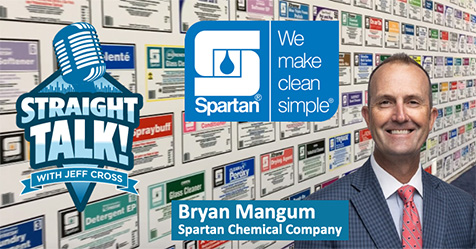The Dirty Job of Cleaning Philadelphia’s Transit Lines
According to a recent article by Metro Philadelphia, when it comes to dirty jobs, the custodians of the Southeastern Pennsylvania Transportation Authority (SEPTA) transit lines have among the dirtiest.
“Sometimes, there’s urine. There’s feces,” said Judrol Corke, a 41-year-old SEPTA custodian who leads a team of up to five custodians in charge of cleaning four stops along the SEPTA’s busiest line, the Market-Frankford Line, also known by locals as “the El.”
Starting at 5 a.m. and moving from station to station via the El trains, Corke’s crew sweeps up litter, sanitizes turnstiles, wipes off graffiti, empties trash, and cleans up the human excrement along the way.
According to Metro, each station presents its own unique cleaning challenges. Some stations, being elevated, submit the crew to the outside elements. Another, near construction, presents much more dust. At another, spilt coffee is a big problem due to its proximity to a Wawa convenience store.
Bleach tends to be the cleaner of choice for excrement. GAT, a specialty chemical solution, is used in graffiti removal. Since the start of the COVID-19 pandemic, all turnstiles and key card machines, previously sanitized just once during a shift, are now sanitized twice.
It’s also a dangerous environment in which to work. On Tuesday, February 7, a man was stabbed at a SEPTA station, according to NBC 10 news in Philadelphia. Two other stabbings, one deadly, happened less than a week beforehand along the SEPTA lines, as did a shooting on one of the trains.
Beyond the physical violence are the dangers lurking in the litter. Custodian Sylvester Henry told Metro he disposes of injection needles daily.
SEPTA supervisor Rachel Allen advises custodians to leave the area and alert SEPTA transit police if they witness a heated argument or fight. The team is also to notify police if a homeless person or drug user is encountered at a station.
“We have to keep in mind that it’s still part of the streets,” Allen said of the transit system. “We’re dealt some nasty hands at times, but we do our best.”
“The job is challenging,” Corke told Metro. “But it takes care of me and my family, so I’ve fallen in love with the job.”

